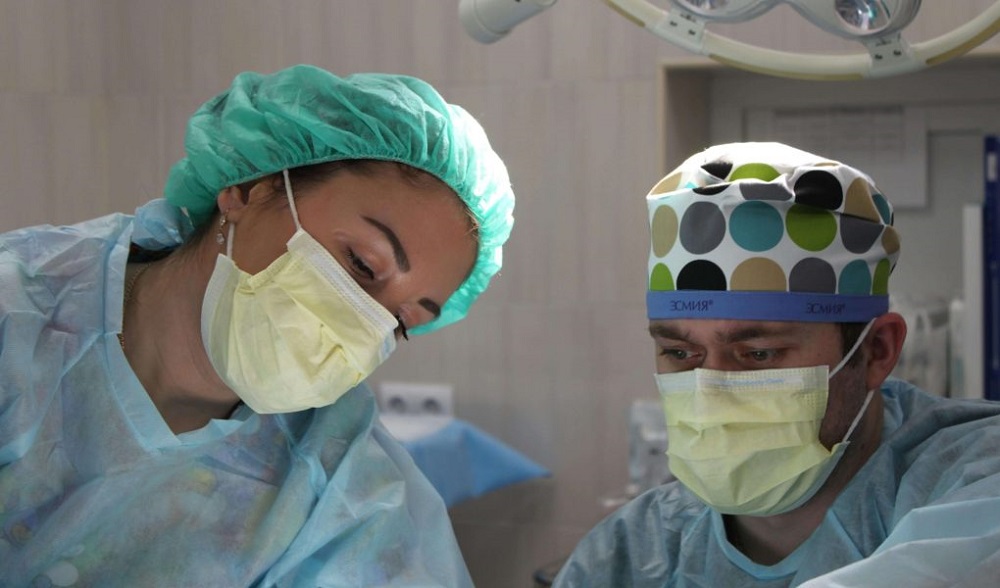
Undergoing any surgical procedure, whether for medical or aesthetic reasons, can be a significant event that requires careful post-operative care. Your skin, having gone through the trauma of surgery, needs special attention to ensure optimal healing and minimal scarring. This guide will walk you through the essential steps for effective post-surgery skincare, drawing on expert advice and scientific research to help you achieve the best possible outcomes.
The Importance of Post-Surgery Skincare
Post-surgery skincare is crucial for several reasons:
- Promotes Healing: Proper care can accelerate the healing process.
- Prevents Infections: Keeping the area clean reduces the risk of infection.
- Minimizes Scarring: Correct skincare can help reduce the appearance of scars.
- Enhances Comfort: Proper hydration and care can alleviate discomfort and dryness.
Expert Tips for Post-Surgery Skincare
Gentle Cleansing
Dr. Steven Pearlman, a board-certified facial plastic surgeon, emphasizes the importance of gentle cleansing post-surgery. “Post-surgery skincare is all about gentle cleansing and hydration. Avoid harsh scrubs or exfoliants, and stick to fragrance-free, hypoallergenic products to minimize irritation.” (Source: Dr. Pearlman’s Instagram)
Opt for mild, soap-free cleansers that do not disrupt the skin’s natural barrier. Cleanse your skin twice a day to remove dirt and prevent infections.
Hydration is Key
Keeping your skin hydrated is vital for recovery. Use a fragrance-free, non-comedogenic moisturizer to maintain hydration. Look for ingredients like hyaluronic acid, glycerin, and ceramides which help to lock in moisture without irritating the skin.
Sun Protection
Sun protection is a critical aspect of post-surgery skincare. Dr. Lara Devgan, a board-certified plastic surgeon, advises, “Sun protection is crucial after surgery. Use a broad-spectrum sunscreen with at least SPF 30 to protect your skin from further damage and prevent scarring.” (Source: Dr. Lara Devgan’s Instagram)
UV rays can worsen scars and delay the healing process. Apply sunscreen daily, even if you are indoors, and wear protective clothing and hats when outside.
Follow Your Surgeon’s Instructions
Dr. Sheila Nazarian, another renowned board-certified plastic surgeon, highlights the importance of adhering to your surgeon’s recommendations: “Your surgeon may recommend specific products or ingredients to use during your recovery. It’s important to follow their instructions carefully and avoid using anything that could interfere with the healing process.” (Source: Nazarian Plastic Surgery Instagram)
This might include specific ointments, silicone sheets, or other post-surgery skincare products designed to enhance healing and reduce scarring.
Diet and Hydration
Dr. Jason Diamond, a board-certified facial plastic surgeon, points out the significance of diet and hydration: “Don’t neglect your diet and hydration during your recovery. Eating a healthy diet and drinking plenty of water can help to promote healing and reduce inflammation.” (Source: The Diamond Face Institute)
Include plenty of fruits, vegetables, lean proteins, and whole grains in your diet. Avoid processed foods, excessive sugars, and alcohol, which can impede the healing process.
Patience and Realistic Expectations
Dr. Sachin Shridharani, a board-certified plastic surgeon, reminds us that recovery takes time: “Recovery is a gradual process, and it’s important to be patient. Don’t expect to see immediate results, and allow your body the time it needs to heal properly.” (Source: Luxurgery NYC)
Understanding that healing is a gradual process helps in setting realistic expectations and reduces the anxiety associated with post-surgery recovery.
Steps for Effective Post-Surgery Skincare
Step 1: Initial Care and Cleaning
- First 24-48 Hours: Follow your surgeon’s instructions regarding wound care. This usually involves keeping the area clean and dry. Avoid touching or disturbing the surgical site unnecessarily.
- Cleaning: Use a gentle, soap-free cleanser to clean the area around the incision. Pat dry with a clean towel.
Step 2: Moisturize
- Daily Moisturization: Apply a gentle, fragrance-free moisturizer to keep the skin hydrated. Ingredients like hyaluronic acid and ceramides are excellent for maintaining skin moisture.
- Special Products: Your surgeon may recommend specific products such as silicone sheets or gels to minimize scarring.
Step 3: Sun Protection
- Sunscreen: Apply a broad-spectrum sunscreen with at least SPF 30 daily. Reapply every two hours if you are outside.
- Protective Clothing: Wear hats, sunglasses, and protective clothing to shield your skin from the sun.
Step 4: Healthy Lifestyle
- Hydration: Drink plenty of water to keep your skin hydrated from the inside out.
- Diet: Eat a balanced diet rich in vitamins and minerals that support skin health, such as Vitamin C, Vitamin E, and Zinc.
- Avoid Smoking: Smoking can impair the healing process and worsen scarring.
Step 5: Monitoring and Follow-Up
- Regular Check-Ups: Attend all follow-up appointments with your surgeon to monitor your healing progress.
- Watch for Signs of Infection: If you notice increased redness, swelling, or discharge, contact your surgeon immediately.
Personal Anecdote
I remember my friend Sarah, who underwent a minor cosmetic procedure last year. She was diligent about her post-surgery skincare routine, which included using a gentle cleanser and moisturizing twice daily. She also religiously applied sunscreen, even when she was just at home. Her commitment paid off, as her skin healed beautifully with minimal scarring. Seeing her dedication inspired me to take better care of my skin, even without having undergone surgery.
Understanding the Science Behind Post-Surgery Skincare
The Role of Proper Skincare in Healing
A systematic review of the literature on postoperative recovery after aesthetic surgery highlights several factors that influence healing, including the patient’s age, health status, type of surgery, and post-operative care. The review emphasizes the importance of proper wound care, pain management, and scar prevention strategies for optimal healing and aesthetic outcomes. (Source: Aesthetic Surgery Journal)
The Impact of Skincare Products
A study titled “Postoperative Care in Plastic Surgery: A Review of the Evidence” summarizes the current evidence on postoperative care practices in plastic surgery. It underscores the significance of using appropriate skincare products to aid in the healing process. Products with ingredients like silicone can help reduce scarring, while gentle moisturizers can keep the skin hydrated and prevent irritation. (Source: Plastic and Reconstructive Surgery)
The Emotional Aspect of Recovery
Recovery from surgery is not just a physical process but an emotional one as well. The appearance of scars or changes in your skin can impact your self-esteem. It’s important to give yourself time to heal and to seek support if needed. Engaging with online communities or support groups can provide reassurance and tips from others who have undergone similar experiences.
Conclusion
Taking care of your skin after surgery is essential for promoting healing, reducing the risk of complications, and achieving the best possible results. By following the advice of experts like Dr. Pearlman, Dr. Devgan, and Dr. Nazarian, and by incorporating gentle cleansing, proper hydration, and sun protection into your routine, you can help your skin recover beautifully.
Remember, patience is key. Healing is a gradual process, and it’s important to allow your body the time it needs to recover. By being diligent with your post-surgery skincare and maintaining a healthy lifestyle, you’ll be well on your way to achieving a radiant, healthy complexion.



